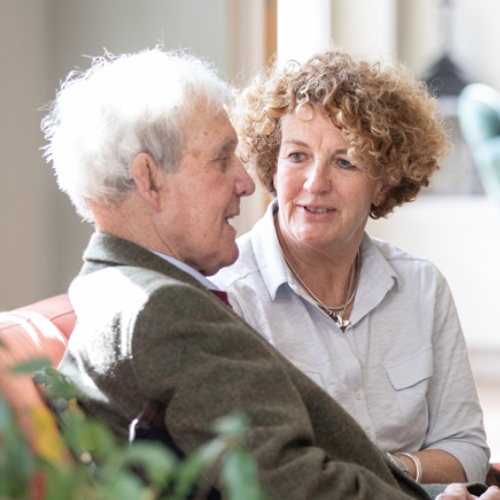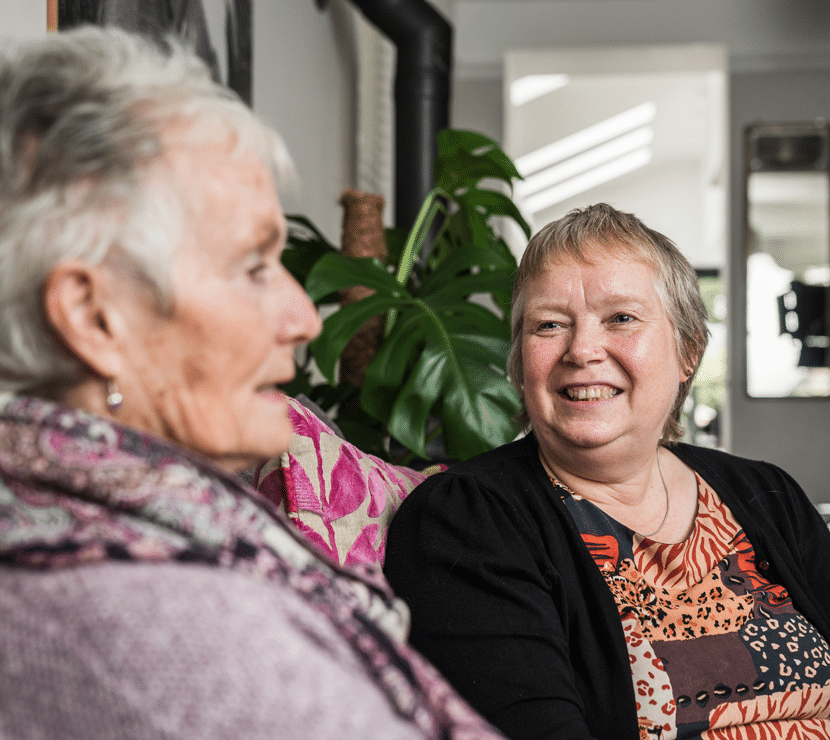Loneliness and social isolation among older individuals can have detrimental effects on their mental and physical well-being. As people age, changes in their social networks, health limitations, and life transitions can lead to increased feelings of loneliness and isolation. Retirement, the loss of a spouse or close friends, mobility issues, and decreased participation in social activities are just a few factors that can contribute to this growing problem.
The impact of social isolation on older adults cannot be overstated. Studies have shown that prolonged loneliness and isolation are associated with an increased risk of depression, anxiety, and cognitive decline.
In this article, we will discuss practical ways to support and empower older adults to stay connected and engaged. From encouraging social connections to utilising technology and community resources, there are numerous approaches that can make a significant difference in improving the well-being of older adults.
The elderly and social isolation
In the UK, approximately 1.4 million older adults frequently experience loneliness, highlighting the profound impact of social isolation amongst the elderly. Loneliness has emerged as a significant societal issue, garnering increased recognition and attention in recent years.
Loneliness and social isolation, while often linked, are distinct concepts. Loneliness refers to the emotional experience of feeling disconnected or lacking companionship, while social isolation refers to the objective state of having limited social contact or few social relationships.
Social isolation is measured by the level and frequency of social interactions, indicating a lack of meaningful connections with others. This can occur even when surrounded by people if those interactions are infrequent or lack depth.
It’s important to note that being alone does not necessarily equate to loneliness. Some individuals may enjoy spending time alone and feel content, while others may feel lonely despite being in the company of others.
While loneliness itself is not classified as a mental health disorder, prolonged or intense experiences of loneliness can have detrimental effects on mental well-being. Loneliness and poor mental health are often intertwined, with each exacerbating the other. Conversely, social connectedness is associated with better mental health outcomes.
How can you tell someone is socially isolated?
It can be incredibly challenging for individuals to admit they’re feeling lonely, especially as they age. Pride and independence are often cherished values, making it even more difficult to reach out for help. Moreover, the ups and downs of life can obscure longer-term feelings of loneliness. However, there are subtle signs that may indicate someone is experiencing social isolation.
One common indicator is a significant change in their routine, such as staying in bed later than usual or withdrawing from regular activities. Neglecting personal appearance or hygiene, irregular eating habits, self-deprecating remarks, or noticeable changes in behaviour can also signal feelings of loneliness. However, it’s important to note that not all individuals who live alone or enjoy solitude necessarily experience loneliness.
As a caregiver or concerned friend, you may notice these signs before the individual acknowledges their loneliness or is able to discuss it openly. It can be challenging to confront the idea that someone you care about may be lonely, as you may feel hesitant to label them as such or worry about imposing. Nevertheless, recognising the signs of loneliness is the first step toward providing meaningful support and companionship to those who need it.
How to support an elderly person
Supporting an elderly person in combating social isolation requires proactive measures to foster social connections and engagement. Here are some strategies to consider:
Start the conversation
Starting an open and non-judgmental conversation about feelings of loneliness or isolation is a crucial first step. Encourage the elderly person to express their thoughts and emotions, and actively listen to their concerns. Assure them that it’s normal to feel lonely at times and that seeking support is a sign of strength, not weakness.
Encourage exercise
Regular physical activity can provide numerous benefits for both physical and mental health. Encourage the person to engage in activities such as walking, swimming, or yoga, tailored to their abilities and preferences. Exercise not only promotes physical well-being but also boosts mood and self-esteem, making it an effective tool for combating loneliness. Offering to participate in a fun activity with them may be just the encouragement they need to get started.
Get them out of the house
Encourage participation in social activities and outings to prevent feelings of isolation. Help them explore community resources such as senior centres, libraries, or local clubs where they can meet new people and engage in shared interests. Plan outings together, whether it’s a leisurely stroll in the park, a visit to a museum, or attending social events in the neighbourhood.
Offer transportation
Many elderly individuals may face challenges with transportation, which can limit their ability to engage in social activities outside the home. Offer to provide transportation assistance or help them arrange transportation services, such as community shuttles or ride-sharing apps. By ensuring they have reliable means of transportation, you can empower them to participate in social outings and maintain connections with others.
Help them feel needed
Encourage opportunities for the elderly person to contribute to their community or family, as this can boost their sense of purpose and belonging. Whether it’s volunteering for a local organisation, sharing their wisdom and experiences with younger generations, or participating in household tasks, helping them feel needed can enhance their overall well-being and combat feelings of isolation. Try asking them to teach you their favourite lasagna recipe or share old family stories.
Use tech to keep in touch
Introduce the elderly person to technology tools that facilitate communication and connection with others, such as smartphones, tablets, or video calling apps. Teach them how to use these devices to stay in touch with family members, friends, and support networks, even if they are physically distant. Virtual communication can bridge geographical barriers and provide a sense of companionship and social interaction.
Share a meal
Invite the elderly person to share meals with you or other family members regularly. Sharing a meal provides an opportunity for social interaction and conversation, fostering a sense of connection and companionship. Whether it’s a homemade dinner, a picnic in the park, or dining out at a favourite restaurant, the act of sharing food together can strengthen bonds and alleviate feelings of loneliness.
Consider a pet
Pets can provide valuable companionship and emotional support for elderly individuals, particularly those who live alone or are at risk of social isolation. Consider adopting a pet, such as a cat, dog, or small animal, as a source of unconditional love and companionship. Pets can offer comfort, companionship, and a sense of purpose, as well as opportunities for physical activity and social interaction. However, it’s essential to consider the individual’s ability to care for and accommodate a pet’s needs before making this decision.
Try a befriending service
Explore befriending services provided by organisations like Age UK, which offer valuable companionship and support to older individuals facing loneliness and social isolation.
- Telephone friendship: Age UK and partner charities like The Silver Line offer free telephone friendship services, allowing seniors to engage in meaningful conversations from the comfort of their homes. Whether they seek regular chats or occasional calls, these services provide a vital connection for those in need.
- Face-to-Face befriending: Many local Age UK branches offer face-to-face befriending services, where volunteers visit older adults in their homes. These visits may involve sharing a cup of tea, engaging in conversation, or accompanying them to various activities like outings or appointments. This personal interaction helps alleviate loneliness and provides valuable companionship for older individuals.
How can live-in care prevent social isolation?
Live-in care offers a personalised solution to prevent social isolation among elderly individuals. By having a dedicated carer residing with them in their own home, older adults receive consistent companionship and support tailored to their unique needs.
Live-in caregivers provide constant companionship, engaging older adults in meaningful conversations, activities, and outings. This consistent presence helps combat feelings of loneliness and isolation by fostering a sense of connection and belonging.
We have been providing care services throughout Oxfordshire and its surrounding counties for over 50 years. Located in the heart of Oxford, our reputation is built on high standards of live-in care, local expertise and an approach to care delivery that is trusted by families throughout our community and beyond.
Contact us today to learn how expert live-in care from Oxford Aunts can help you and your family.





